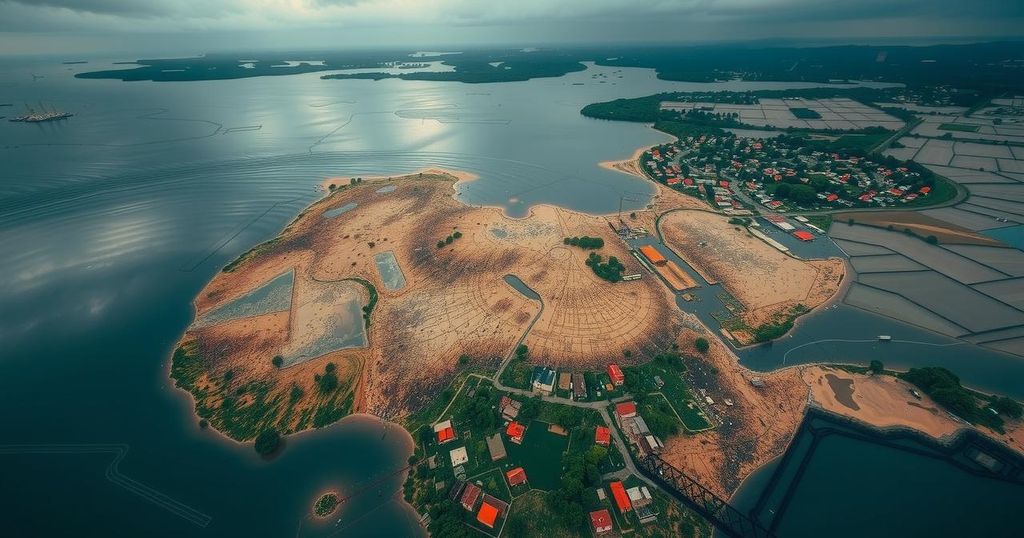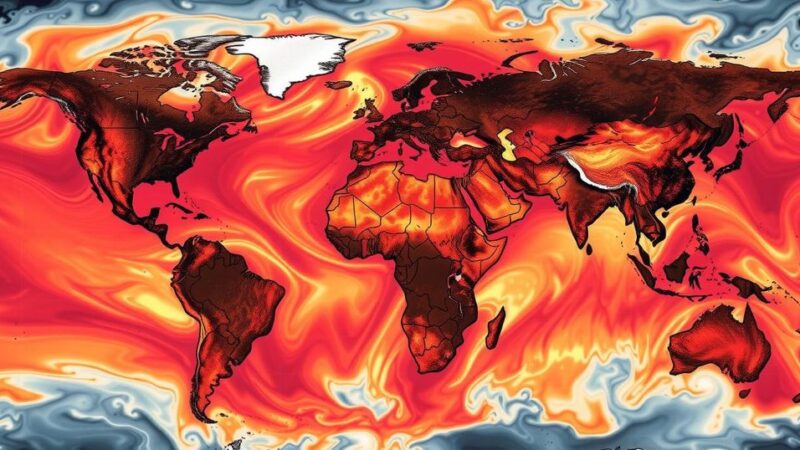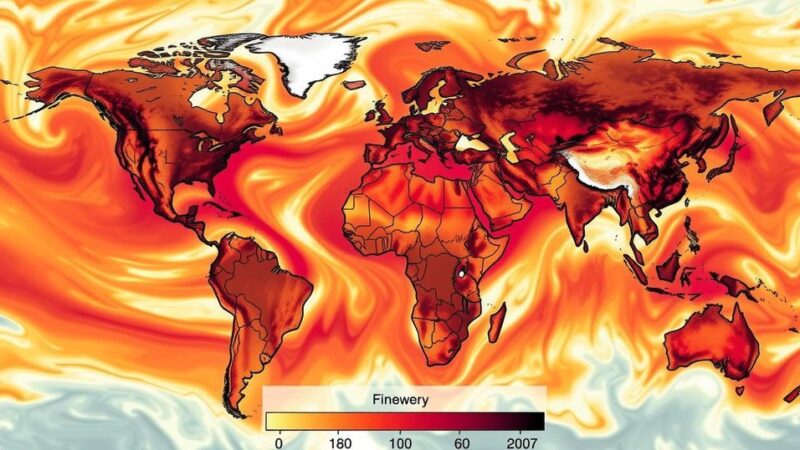The article elaborates on the devastating effects of climate change-induced flooding across Africa, focusing on the experiences of individuals in Nigeria. Recent data from the United Nations indicates that millions have been affected by severe floods, with significant implications for food security and housing. Experts warn that without drastic measures to curb greenhouse gas emissions, such flooding is likely to worsen, impacting an increasing number of people in the continent.
Recent climate change has caused unprecedented flooding across Africa, particularly affecting regions such as central Nigeria. For the past twelve years, individuals like 67-year-old Idris Egbunu have witnessed recurrent flood damage to their homes, particularly during the rainy season. The Niger River, in conjunction with its tributaries, continues to overflow, necessitating significant repairs and cleaning after each inundation. In 2024 alone, approximately 6.9 million people in West and Central Africa have been impacted by torrential rains, according to the United Nations Office for the Coordination of Humanitarian Affairs (OCHA). In the Kogi state of Nigeria, worsening floods began in 2012 and have escalated annually, with significant devastation recorded in 2022, when over 500 lives were lost, and 1.4 million individuals were displaced. Emergency advisor Sandra Musa reported that while this year’s flooding has not reached the catastrophic levels of 2022, the current conditions are still alarmingly severe, affecting around two million residents. Notably, the consequences of flooding extend beyond immediate property loss. The impacts include significant threats to food security as crops are destroyed. For instance, Fatima Bilyaminu, a local shopkeeper, lost her possessions due to rising waters and struggles to make necessary repairs with limited resources. Research indicates that Africa disproportionately faces the consequences of climate change; although contributing only about four percent to global greenhouse gas emissions, the continent is experiencing extreme weather conditions. The World Meteorological Organization noted that the year 2024 is projected to be among the hottest on record, further intensifying rainfall patterns across the Sahel region and elsewhere. This rampant flooding has resulted in substantial loss of life and has prompted widespread displacement. For example, torrential rains in Chad have led to the deaths of 576 individuals and affected approximately 1.9 million more, while in Cameroon, over 56,000 homes have been destroyed, and agricultural lands severely flooded. Moreover, historic sites, such as the Tomb of Askia in Mali, have suffered physical damage due to persistent weather extremes. Experts warn that if the reliance on fossil fuels continues unabated, the frequency and severity of such extreme weather events are only expected to increase. With up to 118 million Africans projected to face the dual challenges of drought and flooding by 2030, it becomes imperative for global efforts to focus on reducing greenhouse gas emissions to mitigate the severe impacts of climate change.
The article discusses the increasing severity and frequency of floods in Africa, exacerbated by climate change, particularly emphasizing its impact on Nigeria, a nation significantly affected by such environmental changes. As global temperatures rise, traditional weather patterns have changed, leading to catastrophic flooding events that threaten human settlements and agricultural viability. The piece highlights the implications of these changes not only for affected communities but for regional food security and overall social stability. International organizations, such as the United Nations, provide data supporting the narrative of escalating climate impacts, underscoring the need for coordinated global action to reduce greenhouse gas emissions. The context of this worrisome trend illustrates the broader implications of climate change on vulnerable populations.
In conclusion, Africa is facing one of its most challenging environmental crises due to intensified flooding, driven by climate change. Individuals and communities in countries like Nigeria bear the brunt of this phenomenon, experiencing recurring displacement, loss of property, and threats to food security. As extreme weather events become increasingly common, it reinforces the urgent need for global collaboration to reduce greenhouse gas emissions and address the underlying causes of climate change to prevent future catastrophes.
Original Source: phys.org







